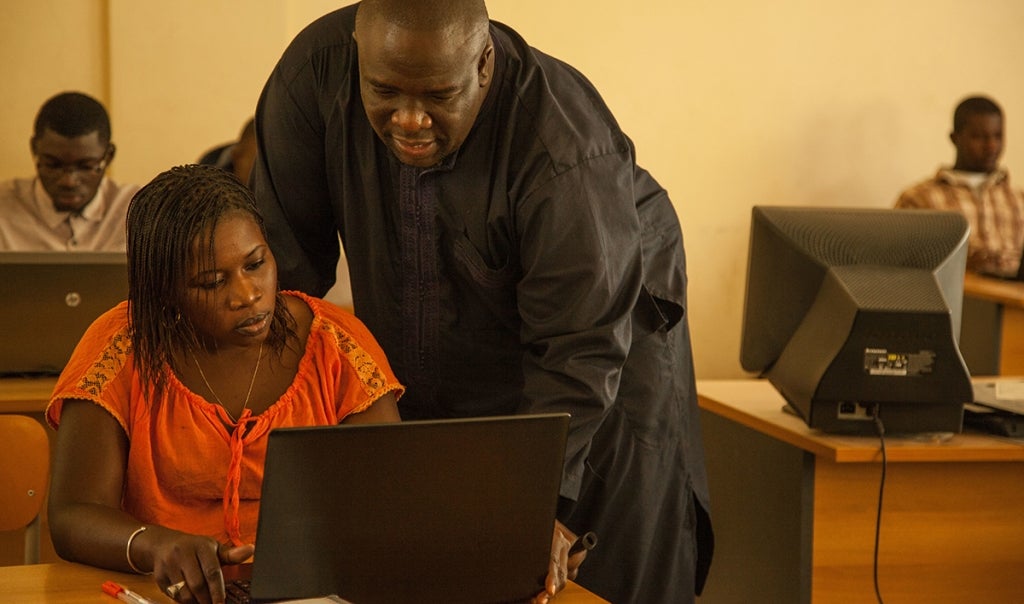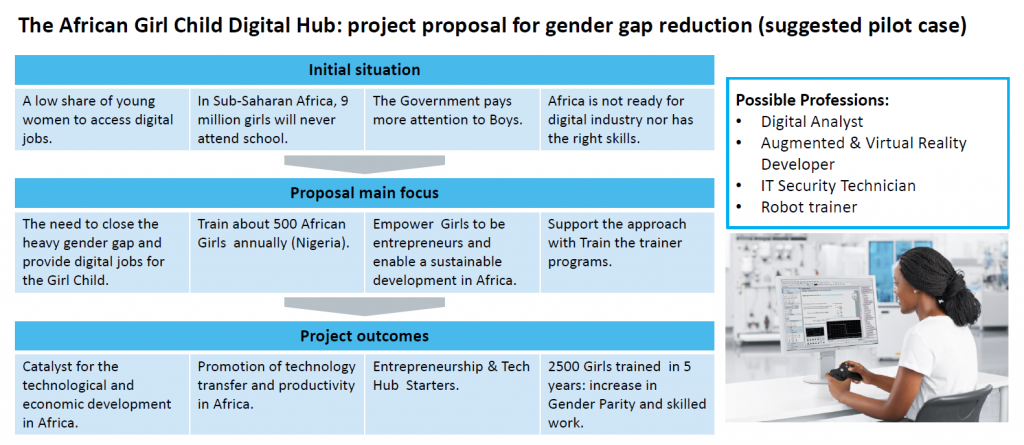
The ongoing pandemic has demonstrated the critical importance of digital technologies. While private sector firms consider digital capabilities as a core driver of competitiveness, this is still a relatively new concept for governments. What are digital capabilities? They can be visualized as the “glue” linking together the five pillars of the digital economy: digital infrastructure, digital platforms, digital entrepreneurhip, digital financial services, and digital skills. In today’s digital age, digital capabilities are a prerequisite to the transformation of our nations and our economies.
The World Bank recently hosted an event highlighting the importance of this agenda for our client countries. Experts discussed what it will take for governments to achieve digital transformation emphasizing the need to do more to ensure citizens, businesses and governments are digitally-enabled. Participants noted that for the public sector, digital capabilities should be considered as building blocks for improved service delivery, as well as greater transparency and accountability.
Five important takeaways emerged from the discussion:
- Deploying adequate infrastructure to support the development and use of various digital platforms in the public sector to accelerate service delivery and citizen engagement is absolutely critical.
- Developing at a national level digital content and services—such as eHealth, e-Education and digital government applications—to create a culture of digital transactions, and an understanding of data-driven development, is just as important.
- Skilling up and re-skilling the workforce, particularly civil servants, educators, private sector employees, and IT workforce, in order to adapt to the ‘new normal’ is imperative. Robust curriculum must be designed as well as targeted learning paths to develop competitive sector-specific skills, through schools, universities, private sector and public service academies. Inclusion of women and vulnerable youth in digital skills programs is key. Digital skills are indeed critical to ensure uptake of digital content and services.
- Realigning digital economy strategies with local contexts to harness the full power of technology in the Fourth Industrial Revolution is essential. Countries must consider contextual use of data science, cloud computing, artificial intelligence and advanced digital analytics.
- Overall growth in digital services can serve as recession proof and growth opportunity in resource constrained macroeconomic conditions.
The following case studies were used to illustrate how governments are applying some of the above strategies to promote digital capabilities for women and/or young vulnerable citizens in Nigeria, Africa’s biggest economy—a country well-positioned to develop a strong digital economy.
Festo Didactic, a leading provider of equipment and solutions for technical education, launched a pilot program on digital capabilities targeting young women in Africa through a Digital Hub in Nigeria to help close the gender gap and provide digital jobs to young women.
In Kaduna, a state located in the Norwest of Nigeria, to empower disadvantaged youth and women between the ages of 18 and 20, the government launched the ‘Click-On Kaduna’ program in partnership with the World Bank Group and the Rockefeller Foundation. The program is using digital technologies to drive innovation, digital skills, and job creation, and break the cycle of unemployment, and fragility, violence and conflict in Kaduna State. Connecting Nigeria’s unemployed and underemployed youth to the digital economy is especially critical in Kaduna State, where many young people have limited access to gainful employment opportunities in the local/global markets.
The results of this pilot program are encouraging: out of the 150 pilot participants, 128 completed 411 pilot jobs and earned over $4,110. One year after the pilot, Click-On Kaduna participants earned over $50,000.
The most valuable lessons from these two pilots are that countries that are early adopters of digital solutions are more likely to maintain business continuity during crisis such as the one the world is expericiening today with COVID-19. Finally, partnerships between governments and the private sector are essential. The World Bank, International Telecommunications Union (ITU), the GSMA, the Global Mobile Industry Association and the World Economic Forum (WEF) joined forces to develop an action plan to prioritise areas for public-private collaboration. Increasing digital connectivity should be a collective effort.





Join the Conversation